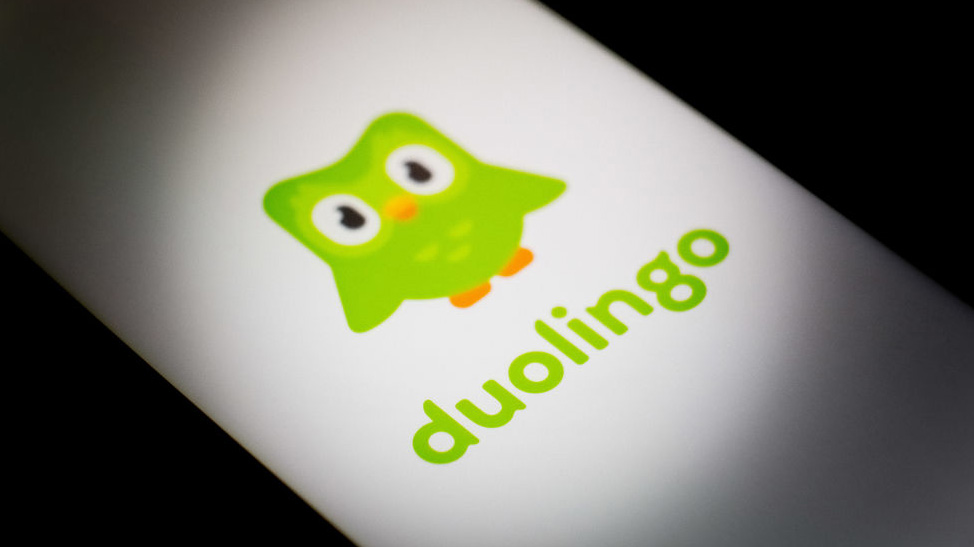Duolingo's AI-driven jobs cuts are a no brainer – here's why
When it comes to efficiency, Duolingo can't be blamed for adopting the best tools for the job


Sign up today and you will receive a free copy of our Future Focus 2025 report - the leading guidance on AI, cybersecurity and other IT challenges as per 700+ senior executives
You are now subscribed
Your newsletter sign-up was successful

Remember when robots first made their way into factories and production lines, threatening the livelihoods of industrial workers in the process? You might not – it all began in the sixties at the behest of George Devol, founder of Unimation. Now, more than 60 years later, industrial robots are a familiar sight, turning their hand to everything from car manufacturing to healthcare.
You’re not alone if you forget this long history of technological automation. As Duolingo becomes the latest company to announce a landslide of AI-related layoffs, the global reaction is one of fear, anger, and people feverishly comparing AI advancements against their increasingly threatened job descriptions.
The point is that AI automation shares its legacy with mechanical automation and will, in the same way, blow a hole in traditional forms of employment. Automation is simply the natural course for businesses, the path of least resistance in terms of streamlining productivity and widening profit margins.
Leaders have always looked to any advancement likely to help cut costs – think self-service checkouts at the supermarket or ticket machines in train stations. But fears about AI seem to spark a unique terror in people’s minds.
These fears have been brewing for a while. AI-linked job cuts are already here, as generative AI could expose around 300 million jobs to automation according to a report by Goldman Sachs published in March 2023. Some executives have been less than subtle in their assessment of AI’s potential. IBM CEO Arvind Krishna said in an interview with CNBC that generative AI will allow businesses to “get the same work done with fewer people”.

That’s the “nature of productivity” he went on, to embrace efficiency wherever possible, even if it also means embracing the sad reality of mass unemployment. In the tradition of automation, Duolingo is doing what businesses will always do: increase profit in any way it can.
Surely few would claim that Duolingo’s latest announcement is anything but financial prudence. As one of Duolingo’s spokespeople plainly put it, “We just no longer need as many people to do the type of work some of these contractors were doing. Part of that could be attributed to AI”.
Sign up today and you will receive a free copy of our Future Focus 2025 report - the leading guidance on AI, cybersecurity and other IT challenges as per 700+ senior executives
RELATED RESOURCE

Get the most of the opportunities GenAI offers
DOWNLOAD NOW
With the work in this case constituting reams of translations for the Duolingo app, this seems fair. This is a large language model’s (LLM) bread and butter at the end of the day, amassing and assessing large data sets to find and relay the most common and most relevant use cases. The task here is pretty formulaic and, like the factory roles that went before it, susceptible to automation.
In conversation with TechCrunch, a Duolingo spokesperson was candid in their explanation – after ChatGPT translates something, “human experts validate that the output quality is high enough for teaching and is in accordance with CEFR standards”, CEFR being The Common European Framework of Reference for Languages.
That’s not to say the floodgates should be opened entirely. Many jobs still require nuance and evaluation, such as those in government and law, while others demand a certain creative flare that, at least at the moment, AI is incapable of providing.
Of course, the main attraction is fattening the bottom line of company executives. Automation will line the pockets of those higher up the food chain while workers hunt for jobs with increasingly redundant CVs. In light of this, companies may have to start thinking seriously about AI upskilling programs to avoid mass unemployment.
The point remains that Duolingo isn't doing anything wrong from a business standpoint. Sure, the wording of its company-wide layoff is a little cold – the decision is left to be discerned in a vague request that terminated employees “complete our Duolingo Exit Survey” – but companies announce mass layoffs all the time. It just so happens that, this time, it’s AI-related.

George Fitzmaurice is a former Staff Writer at ITPro and ChannelPro, with a particular interest in AI regulation, data legislation, and market development. After graduating from the University of Oxford with a degree in English Language and Literature, he undertook an internship at the New Statesman before starting at ITPro. Outside of the office, George is both an aspiring musician and an avid reader.
-
 Salesforce targets telco gains with new agentic AI tools
Salesforce targets telco gains with new agentic AI toolsNews Telecoms operators can draw on an array of pre-built agents to automate and streamline tasks
-
 Four national compute resources launched for cutting-edge science and research
Four national compute resources launched for cutting-edge science and researchNews The new national compute centers will receive a total of £76 million in funding